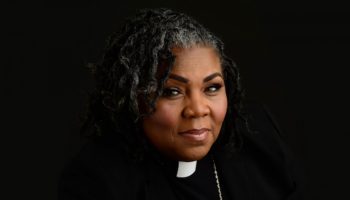NICK DANLAG – STAFF WRITER

DeRay Mckesson has been a leading voice in the Black Lives Matter movement for over six years. In the movement’s early stages, Mckesson went from news organization to news organization to spread their work, but he also took to social media, especially Twitter.
“In 2014, Twitter was really big,” Mckesson said. “It was one of the only ways that we were able to tell people what’s going on. There was no Instagram Live. There was no Facebook Live. There was no Twitter video.”
But now, Mckesson said, more technology gives people greater opportunities to connect.
“One of the important things about this moment is that we’re able to connect with each other in ways that we’ve never been connected before,” Mckesson said.
As well as being a leading voice for the Black Lives Matter movement, Mckesson is a co-founder of Campaign Zero, an American police reform campaign. At 1:30 p.m. Friday, July 23 on the CHQ Assembly Video Platform, Mckesson will discuss what he has learned over the last six years around policing and around the data around it, as well as actions people can take. His lecture is part of the African American Heritage House 2021 Lecture Series.
Much of Mckesson’s work focuses on the local level, and President Barack Obama has praised his work as a community organizer. Mckesson said with issues like policing and mass incarceration, the problem mostly lies within local powers.
“In states, in cities, it’s your city councilperson, it’s your mayor, that’s actually where the problem is,” Mckesson said. “The federal government incarcerates the least amount of people in the system — state and local incarcerate way more than anybody.”
And the same goes for policing. He said though many of the stories told focus on killings by police in big cities, police kill more people in suburbs than almost all other communities combined.
One of the important things about this moment is that we’re able to connect with each other in ways that we’ve never been connected before.”
DeRay Mckesson, Co-founder, Campaign Zero
To help spread information and tools to local communities, Mckesson co-founded Campaign Zero, an organization dedicated to making data accessible on issues like over-policing and mass incarceration. Some of the organizations and websites he is involved in include End All No-Knocks, 8 Can’t Wait, Nix the 6, Mapping Police Violence and Police Scorecard.
8 Can’t Wait in particular saw a lot of support and debate online. The movement revolves around eight restrictive use of force policies that supporters want implemented in cities and states to reduce killings by police officers. The policies range from banning chokeholds to requiring de-escalation and comprehensive reporting.
8cantwait.org has an interactive map of all 50 states and Washington, D.C., showing which states’ legislatures proposed or passed which policies. So far, according to the website, 19 states have at least one policy enacted, with New Jersey being the only state to enact all eight policies and New York enacting the ban on chokeholds and proposing three other 8 Can’t Wait policies.
“We did 8 Can’t Wait, which was one of the biggest reductions of the power of the police in American history,” Mckesson said. “That really helped me see that change is possible — you just need to map it out for people so they know exactly what to do. That really helped me believe again.”
Mckesson said he was also helped by those closest to him.
“I’m super blessed to have great friends and family. That’s where I go when I need to step away from this work that is so rooted in death,” he said. “I’m always reminded that we’re never alone; community makes us strong. So we push back on this idea of self-made. I’m not self-made. A community made me. A community of people helped me be strong and thoughtful.”
On a federal level, Mckesson said people should pay close attention to the Biden administration.
“Biden, today, could let people out of jail at the federal level,” he said. “He could model and signal things that are actually really important, instead of waiting for Congress to do them, and he has not, so that is something that people should be paying attention to.”
And, looking to the future, he has hope.
“I think that we can win,” Mckesson said. “That’s like the most exciting thing I can think of: That we can win in this lifetime.”




